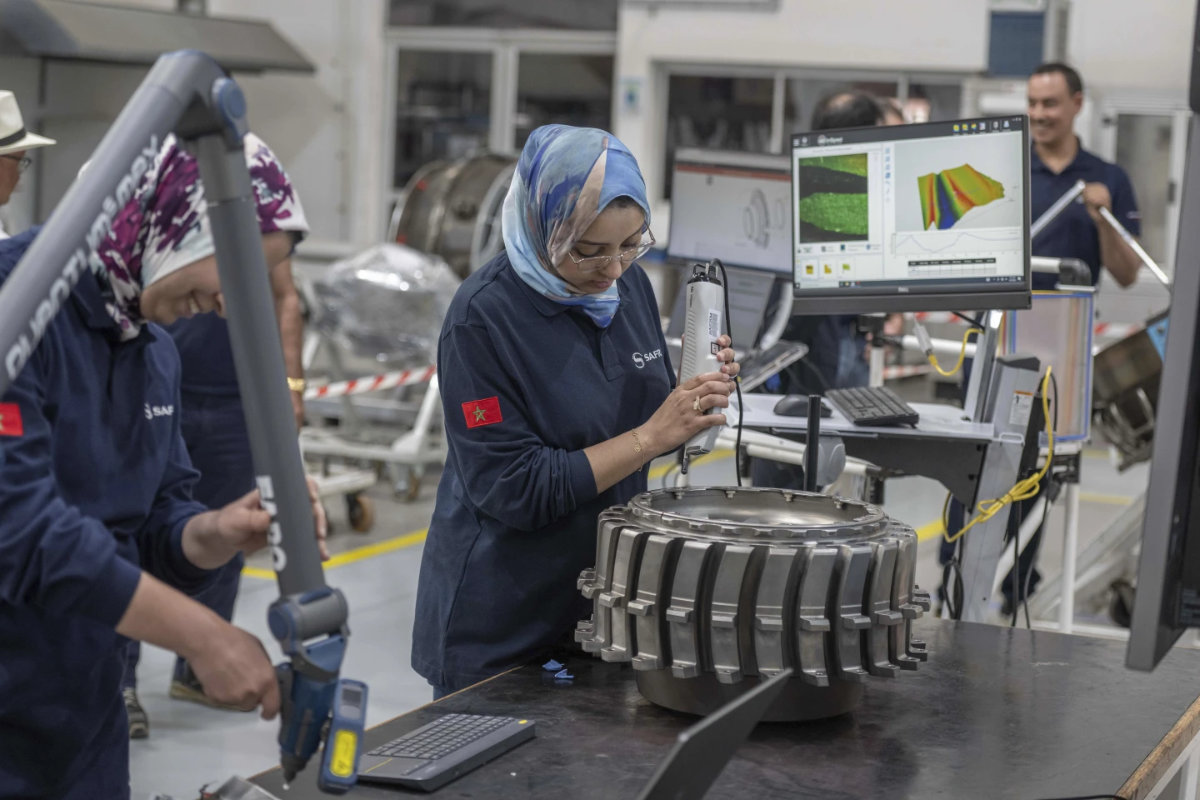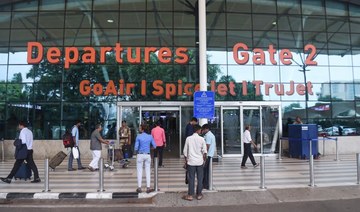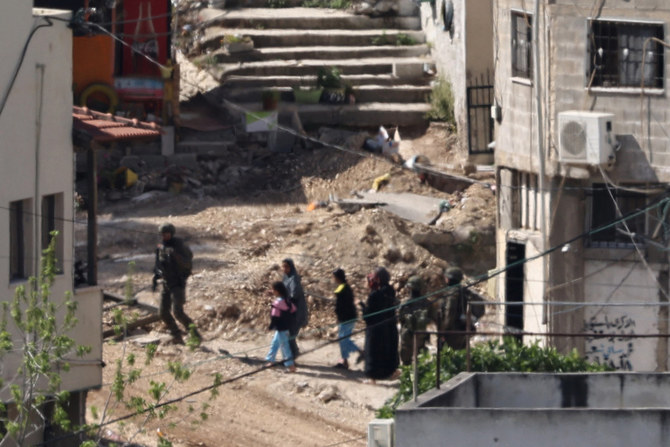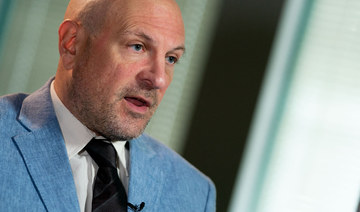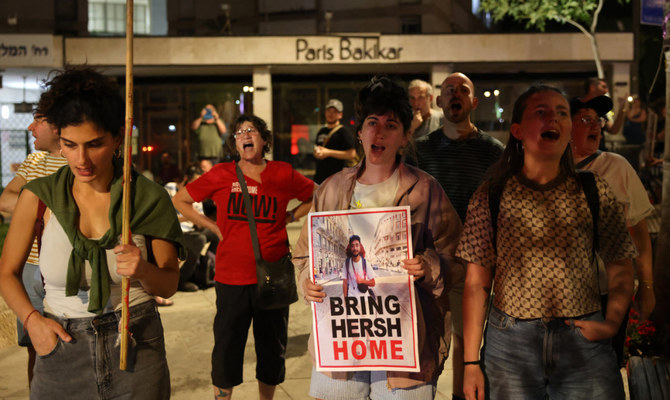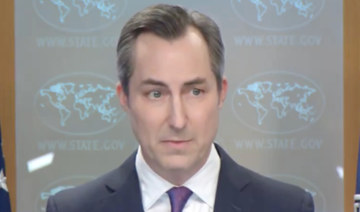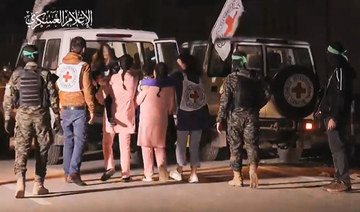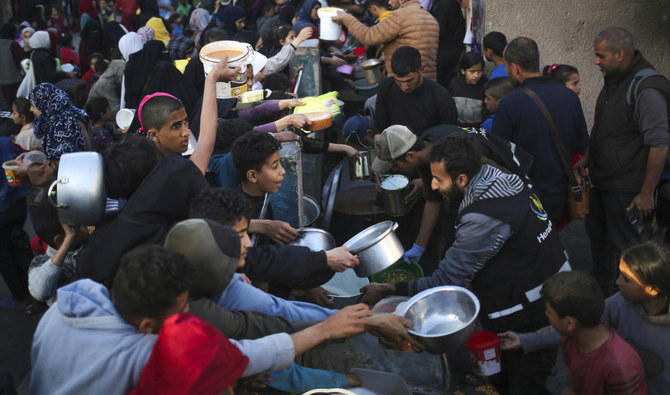ANKARA: Pervin Chakar, one of the few Kurdish opera singers to be awarded various international prizes, is inspiring her Kurdish peers who want to establish a name for themselves in their mother tongue.
Chakar, 39, is originally from Turkey’s southeastern province of Mardin, but she has been living in Baden-Baden, Germany, for the past four years, after spending 11 years in Perugia, Italy.
It was no easy choice for her to live thousands of miles away from her home country, where Kurdish identity, language, culture, and political activism are still criminalized.
Unsurprisingly, performing opera in Kurdish is still perceived as a revolutionary act in Turkey.
Asked why she sings in Kurdish, Chakar responded that the greatest propaganda in the world is the use of one’s native language.
“The great German composer Johann Sebastian Bach said that wherever there is music, God is always at hand with his gracious presence. God is always with me. I feel really blessed when I give happiness to my audience through music,” she told Arab News.
Chakar released an opera album with the Bongiovanni record label in Italy, singing in Mysliveček’s “L’Olimpiade” as Megacle at the Teatro Comunale in Bologna, Italy.
She has two singles on digital platforms. One is the aria “Lascia ch’io pianga” from Handel’s opera “Rinaldo”; the other is the poem “Qimil,” written by assassinated Kurdish intellectual Musa Anter, composed by Chakar and played by harpist Tara Jaff to celebrate Anter’s 100th birthday.
Last year, Chakar was in Turkey for the 150th anniversary of the birth of Armenian composer Komitas Vartabed, for which she performed Armenian and Kurdish folk songs by Komitas at the Cemal Reşit Rey Concert Hall in Istanbul and in the southeastern province of Diyarbakir.
Chakar began singing opera when she was 21 years old. She learned to play the cello at the Diyarbakir Fine Arts High School. She explained how building a career in opera is partly owing to chance.
“I was singing folk songs when I was 14. I didn’t know anything about opera. I wrote some novels, and I won competitions in Turkey during my studies at the Anatolian High School of Fine Arts,” she said. “The competition committee in Ankara then organized a party where I sang the love song by Ludwig van Beethoven, ‘Ich liebe dich.’ The president of the writing competition was impressed by my voice and gave me a CD of Maria Callas after my performance.”
Chakar was unable to listen to the CD for four years because she did not have the money to buy a CD player. When she went to university in Ankara, she received her first scholarship and was at last able to buy a CD player. When she listened to Callas, she was impressed by her voice and decided to start singing opera.
In 2004, while working at the Ankara Opera House, Chakar sang for an Italian opera manager who had come to the city to scout for new voices.
“He invited me to sing in Italy where I continued my studies in opera and completed a master’s degree from the Conservatory of Music in Perugia. He totally changed my life,” she said.
She made her debut in Italy in 2006 at the Teatro Rosetum in Milan. Then, she began winning many international singing competitions and awards in Europe, such as the Golden Orfeo Grand Prix Leyla Gencer in France in 2012; first place at the 28th International Maria Caniglia Singing Competition; first place at the 3rd Giovanni Pacini International Singing Competition in Florence; and special prize at the 10th Ottavio Ziino Opera Competition, among others.
She got the chance to sing with many internationally acclaimed musicians like Montserrat Caballé, Luciana Serra, Salvatore Fisichella, Lella Cuberli, Andrea Bocelli, Ennio Morricone and others.
“I am sorry that Kurdish musicians have trouble finding a place to perform,” she said. “More possibilities and more space must be afforded to Kurdish artists to perform their art and culture. We need to express our art. We are producing a lot, but we fail to sell our product.”
Chakar learned her native language only recently, after the tragic Roboski airstrike in which 34 civilians were killed at the border with Iraq by a Turkish jet in 2011. The civilians were allegedly mistaken for outlawed Kurdistan Workers’ Party militants while smuggling goods into Turkey.
“I was in Italy for a concert organized by the Luciano Pavarotti Foundation. I read the news about the Roboski airstrike on social media. Then I cried a lot. I asked myself why, as a Kurdish opera singer, I didn’t know my native language and culture. After this tragedy, I started researching Kurdish singers, authors, and music. I realized that I had to learn my language immediately,” she said.
“Lo Şivano” (“The Shepherd”) was the first-ever Kurdish song Chakar learned. Although she loves all Kurdish songs, her favorites are those of the Dengbej (storytellers).
It was in 2013 when she sang in Kurdish for the first time in Istanbul for the Andante Classical Music Award Ceremony, where she was nominated Best Female Opera Singer of the year.
“I was surprised by some of the musicians, who asked what language I was singing in on stage. Their questions bothered me. At that moment, I realized that I needed to face the reality of Turkey,” she said.
Chakar believes that not knowing one’s mother tongue means losing a part of one’s soul.
“The Kurdish language is such a fantastic, rich and musical language. I have the privilege of learning foreign languages such as English, Italian and German. Then I learned my mother tongue. What is a nation without a mother tongue? The Kurdish language is a language of the soul,” she said.
After seeing many international opera singers perform in their mother tongue, she began asking herself what she could do to inspire her Kurdish peers in Turkey.
For Chakar, being a Kurdish singer in the world is an important statement. She hopes to spread messages of peace through her music.
“It is the language and culture of a nation that makes that nation what it is,” she said.
Chakar is saddened by Kurdish youth in Turkey who forget their mother tongue after facing social and political restrictions.
“My father was a teacher. Because he was born in a Kurdish-majority town, he was always assigned to remote villages, far from our hometown. My mom always instructed me not to speak in Kurdish. They were always hiding their Kurdish books and music cassettes. Therefore, I had to wait years before I could discover my Kurdish roots through music. It was the beginning of my return to my soul and inner spirit,” she said.
As a goal in her career, Chakar aims to release an album covering the poems of Melayê Cizîrî, one of the greatest 16th-century poets and philosophers in Kurdistan.
“I would like to publish more songs in Kurdish and Kurdish dialects with piano and the duduk instrument. I am also waiting for my new album of Kurdish songs to be released very soon in Japan by a Japanese label,” she said.







